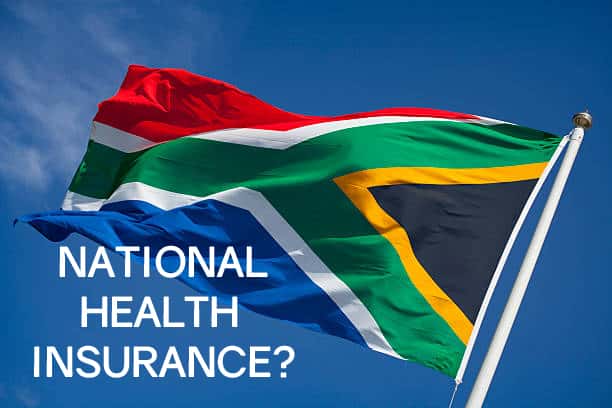National Health Insurance Update from I.H.S
- December 8, 2017
- Posted by: Informed Healthcare Solutions
- Category: Industry Articles

National Health Insurance Update from I.H.S
- December 8, 2017
- Posted by: Informed Healthcare Solutions
- Category: Industry Articles

There has been a lot of noise around N.H.I.(National Health Insurance ) in the press this year and any number of contradictory views and statements have been bandied about with very little clarity on the intended structure, or on the likely funding mechanism. We have been getting a number of questions about this and we thought it might be useful to take a step back and try to come up with an I.H.S. view on what is currently happening and ,more importantly, perhaps what should be happening!
We think we must all acknowledge that, firstly, we do have a state owned functioning countrywide medical facility, made up of clinics and hospitals, which services 85% of the population – private health care with its medical aid funding mechanism, services the other more privileged 15%. The state facility has ;
- Throughout South Africa, quality medical attention, from day to day needs to in-hospital treatment, this from many state owned hospitals and clinics
- This medical delivery comes from Practitioners ranging from GP`s and dentists, to surgeons and anaesthetists, supported by nurses, cleaning and ambulance staff, and a host of other dedicated people. Some practitioners with their own private practices, also elect to offer their services to the state
- This system is funded by patient fees, under a schedule called ` Uniform Patient Fee Schedule` (UPFS), and supplemented by government. Fees paid under UPFS vary according to the income level of the patient, eg persons who receive government grants will receive medical treatment free, and those who are slightly more affluent will pay, for instance, just R65.00 for each out-patient consultation.
Put another way this system currently satisfies some of the needs of most South Africans. It needs improving and buffing up, but not replacing! We should introduce a system whereby the private sector (hospitals/radiologists etc), make available a percentage of their facilities at reduced prices for State patients, thus reducing the need for the State to over-capitalise in equipment/services which already exist. A phasing in period of perhaps 5 years is probably needed to accomplish this.
Therefore ,in our opinion,there should be no downscaling of the private healthcare system – it needs to be refined to assist the State, while ensuring control of unjust enrichment. We absolutely should not want to create a system which prevents medical practitioners from becoming entrepreneurs – this would be self- defeating. We never want to force them to be State employees only! This will only encourage them to leave the country in droves and bear in mind there are already insufficient doctors and nurses in the country.
Part of this upgrading should include more clinics in rural areas where there are clearly not enough plus a general overhaul of both the clinics and the state hospitals. This process should be accompanied by lists of requirements ranging from where are new clinics needed, what additional equipment is needed and where should it go, and what equipment is already available in the private healthcare environment and can be `block-rented` by the state from the private sector. We would need a State appointed corruption-free body/committee to oversee this!
Our last suggestion would be to incorporate the technological assistance and expertise of the major medical schemes in the country such as Discovery, Bonitas and perhaps 2 or 3 others to provide both a level of financial muscle for a limited period plus IT and administrative know-how, to the State facilities. In our opinion this advice etc would be extremely valuable to the State.
The cost would be immeasurably less than replacing what we have with a brand new NHI system and would prove far easier to fund.
Food for thought!
Disclaimer: The information and opinions in this document have been recorded and arrived at in good faith and from sources believed to be reliable, but no representation or warranty, expressed or implied, is made to their accuracy, completeness or correctness. The information is provided for information purposes only and should not be construed as the rendering of advice. Informed Healthcare Solutions accordingly accepts no liability whatsoever for any direct, indirect or consequential loss arising from the use of this document or its contents. IHS is a licensed financial service provider: FSP # 12239